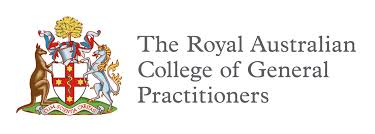
Commission of Audit report places Australians’ health at risk
The Royal Australian College of General Practitioners (RACGP) is concerned that recommendations made to the Government today to curb national debt will risk equitable access to healthcare for all Australians.
A report released today by the National Commission of Audit included a number of controversial recommendations including one that proposes patients be charged up to $15 to access general practice services.
RACGP President, Dr Liz Marles said despite only being recommendations at this stage, the Government should seriously consider the greater implications before implementing any initiatives that will impinge on ubiquitous access to healthcare.
“The RACGP has been strong in its stance on the implementation of a co-payment model since it was raised earlier this year.
“Setting a price signal to all consumers to make a contribution towards the cost of their health is not a move that encourages equitable access to primary healthcare services – instead it adds an additional barrier to access already fraught with complications, such as increased out-of-pocket costs,” said Dr Marles.
This issue is further compounded by recommendations to introduce an equivalent co-payment for emergency room presentations that could have been handled at a general practice level.
“After the removal of the general practice after-hours incentive, we have seen an increase in emergency room presentations that could have been dealt with by general practitioners within the community.
“If the Government is serious about curbing these numbers, it should look at models that center on appropriate funding for general practice rather than what is essentially a ‘penalisation’ model,” said Dr Marles.
The RACGP has previously called on the Government to reconsider any proposals that risk fragmentation of care by expanding the scope of practice to non-medical professionals such as pharmacists and nurse practitioners.
“It is concerning that this model continues to be put forward despite evidence showing there is no benefit to activities, such as preventive health checks, being performed in healthcare settings other than general practice.
“A medically led team-based model of care ensures compliance with best practice and prevents the occurrence of adverse events whilst maintaining continuity of care,” said Dr Marles.
The RACGP is calling on the Government to adequately consult with the general practice profession before accepting any proposal that will have a profound impact on the health of all Australians.
The RACGP in its 2014–15 pre-budget submission details recommendations to the Federal Government to invest in a funding model that supports improved general practice services through the implementation of the medical home.
The RACGP is committed to achieving the best possible health outcomes for all Australians and looks forward to working with the Government in building a robust and viable general practice profession.
Source: RACGP
